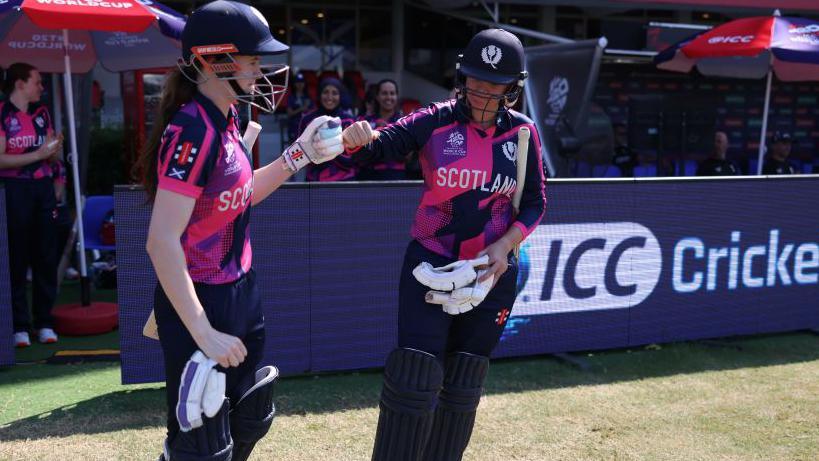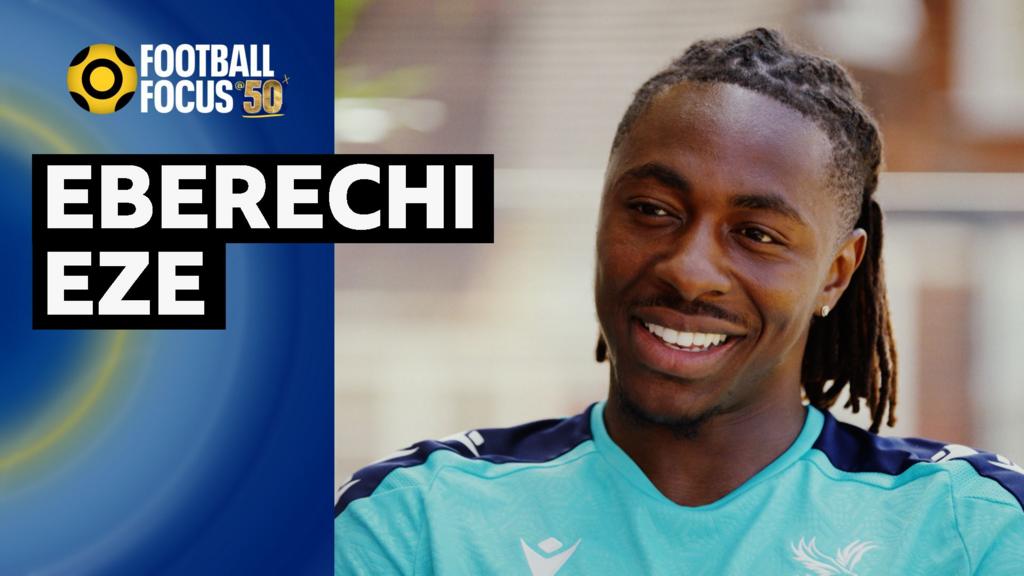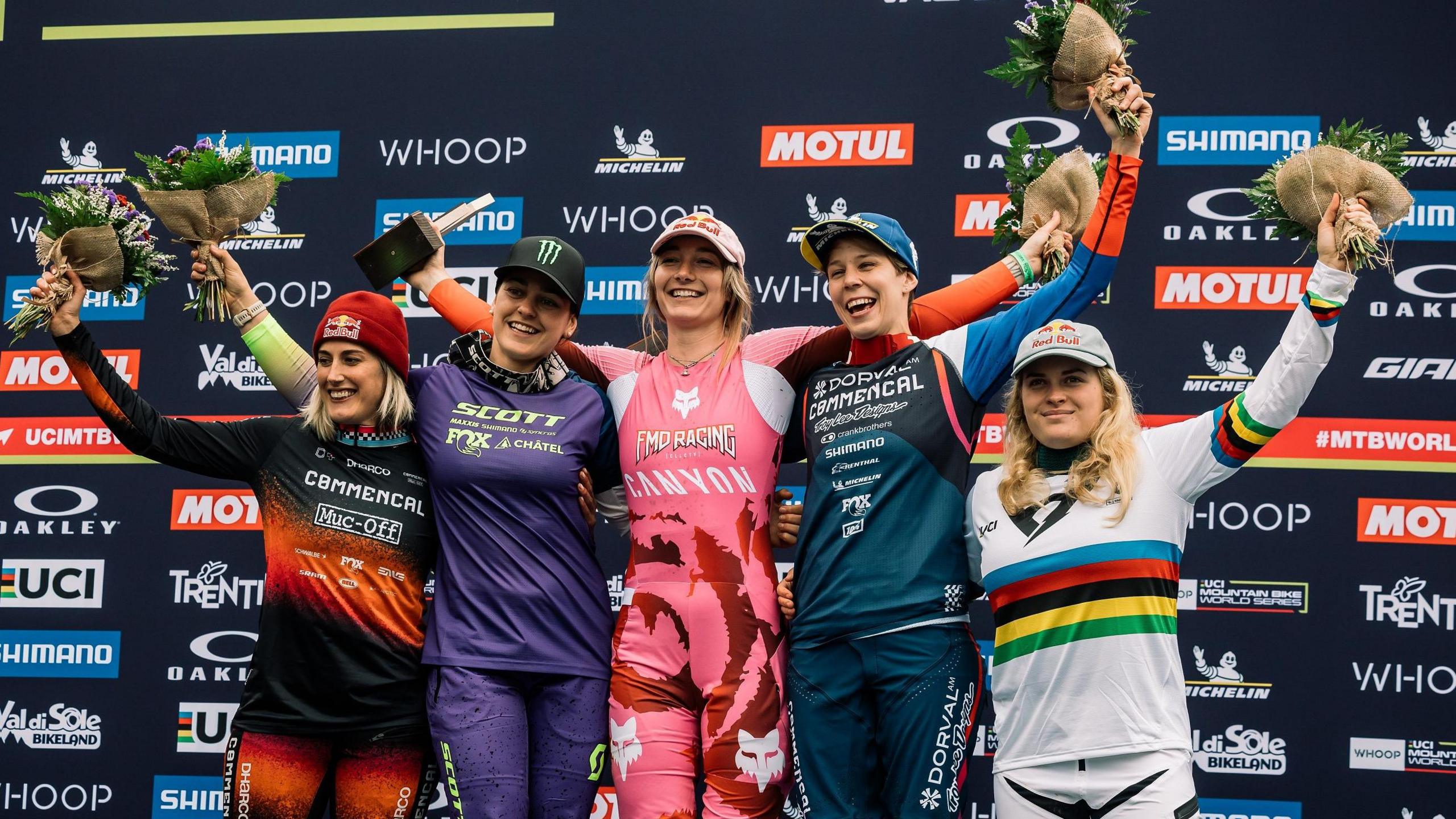Watch Crystal Palace’s journey from the third round through to the final of the FA Cup at Wembley against Manchester City.
WATCH MORE: How Man City made it to the FA Cup final
Available to UK users only.

Watch Crystal Palace’s journey from the third round through to the final of the FA Cup at Wembley against Manchester City.
WATCH MORE: How Man City made it to the FA Cup final
Available to UK users only.

Scotland women’s cricket team were riding a high in December 2024. Just one month after their first appearance at a World Cup, they had been named as their nation’s team of the year.
Less than six months on, they have no fixtures scheduled.
Not one in the diary. In fact, they have not played at home since 2023.
“From a funding perspective, cricket costs so much to run. Our resources are extremely sparse – we’re almost running on fumes to try and have our women’s programme exist,” says director of performance Steve Snell.
“To host a series we’re looking at, give or take, between £75,000 and £100,000 and with very little kickback in terms of getting any money back in from that. If we do that three or four times a year against different teams, it gets expensive very quickly.”
The women’s game for associate countries, unlike Full Member nations like England, does not have a mandated Future Tours Programme that dictates when fixtures need to happen.
With teams having to organise things themselves, even if there is willing from touring countries, such as Pakistan, the prohibitive costs often make it impossible.
And for players such as wicketkeeper Sarah Bryce, the situation is a painful one: “Teams are wanting to play us now, which is really exciting, but we’re not able to.
“It’s just really frustrating because it’s difficult to know how we keep pushing forward as a team when we don’t have those opportunities to develop.”
“We feel pretty helpless. There’s not really much we can do about the situation if we don’t get the financial support that I think we deserve at this point,” agrees bowler Abtaha Maqsood.
Cricket Scotland receives approximately £1.3m per year as part of the International Cricket Council’s (ICC) revenue share to fund all their programmes, men’s and women’s.
The board has reportedly never made a profit.
Compare this with the England and Wales Cricket Board (ECB), which receives in excess of £30m from the ICC and has lucrative series for which to sell broadcast rights on an annual basis. The ECB’s latest accounts show a pre-tax profit of £27.9m.
More assistance could be offered from England with regular fixtures, says Snell.
The ECB says it does offer plenty of support, with a spokesperson saying: “We are happy to support the development of women’s cricket in Scotland and already organise fixtures at a pathway level, including inviting Scotland Women’s under-19s to play in the School Games last year, while England Women’s under-19s will play a number of fixtures against Scotland A this summer.”
But is it enough to only offer support at only junior levels?
“These Full Member nations need to help out the associate members a little bit more and try their best to host us whenever they can because it’s clearly not really coming from the ICC,” says Maqsood.
The ECB says that it is far from being that simple, though: “The priority for England Women has to be scheduling series against ICC Full Members which fulfil our obligations within the ICC’s Future Tours Programme and set the team up for success in global tournaments and marquee series like the Women’s Ashes.”
For Bryce, the need to grow the game should not be seen as purely altruistic, but rather an opportunity to help cricket become a successful sport more widely: “We don’t want it to just be India, Australia and England as the only top three teams competing. I think it’s much more exciting when those World Cups are competitive.”
It has long been an issue for the game that qualifying tournaments for major events are organised late, meaning many of Scotland’s players who are on one-day-per-week contracts have to rearrange life at the last minute to attend.
“We are getting very, very last-minute information about tournaments. And when we’ve got limited funding, it makes planning very difficult. Even four weeks before the tournament in Pakistan with the Women’s World Cup Qualifier, we had scant information about what was happening,” says Snell.
From a player welfare perspective, this is also far from ideal according to Bryce: “It’s okay if it happens once every now and again, but when that’s every tour, it’s so challenging and different people’s workplaces are like: ‘You need to give us more notice’.”
Cricket in the United Kingdom is not short of money – just look at the close to £1bn valuation for the eight franchise teams in The Hundred. According to Snell, it would not take much to make a huge difference.

Scotland women’s cricket team were riding a high in December 2024. Just one month after their first appearance at a World Cup, they had been named as their nation’s team of the year.
Less than six months on, they have no fixtures scheduled.
Not one in the diary. In fact, they have not played at home since 2023.
“From a funding perspective, cricket costs so much to run. Our resources are extremely sparse – we’re almost running on fumes to try and have our women’s programme exist,” says director of performance Steve Snell.
“To host a series we’re looking at, give or take, between £75,000 and £100,000 and with very little kickback in terms of getting any money back in from that. If we do that three or four times a year against different teams, it gets expensive very quickly.”
The women’s game for associate countries, unlike Full Member nations like England, does not have a mandated Future Tours Programme that dictates when fixtures need to happen.
With teams having to organise things themselves, even if there is willing from touring countries, such as Pakistan, the prohibitive costs often make it impossible.
And for players such as wicketkeeper Sarah Bryce, the situation is a painful one: “Teams are wanting to play us now, which is really exciting, but we’re not able to.
“It’s just really frustrating because it’s difficult to know how we keep pushing forward as a team when we don’t have those opportunities to develop.”
“We feel pretty helpless. There’s not really much we can do about the situation if we don’t get the financial support that I think we deserve at this point,” agrees bowler Abtaha Maqsood.
Cricket Scotland receives approximately £1.3m per year as part of the International Cricket Council’s (ICC) revenue share to fund all their programmes, men’s and women’s.
The board has reportedly never made a profit.
Compare this with the England and Wales Cricket Board (ECB), which receives in excess of £30m from the ICC and has lucrative series for which to sell broadcast rights on an annual basis. The ECB’s latest accounts show a pre-tax profit of £27.9m.
More assistance could be offered from England with regular fixtures, says Snell.
The ECB says it does offer plenty of support, with a spokesperson saying: “We are happy to support the development of women’s cricket in Scotland and already organise fixtures at a pathway level, including inviting Scotland Women’s under-19s to play in the School Games last year, while England Women’s under-19s will play a number of fixtures against Scotland A this summer.”
But is it enough to only offer support at only junior levels?
“These Full Member nations need to help out the associate members a little bit more and try their best to host us whenever they can because it’s clearly not really coming from the ICC,” says Maqsood.
The ECB says that it is far from being that simple, though: “The priority for England Women has to be scheduling series against ICC Full Members which fulfil our obligations within the ICC’s Future Tours Programme and set the team up for success in global tournaments and marquee series like the Women’s Ashes.”
For Bryce, the need to grow the game should not be seen as purely altruistic, but rather an opportunity to help cricket become a successful sport more widely: “We don’t want it to just be India, Australia and England as the only top three teams competing. I think it’s much more exciting when those World Cups are competitive.”
It has long been an issue for the game that qualifying tournaments for major events are organised late, meaning many of Scotland’s players who are on one-day-per-week contracts have to rearrange life at the last minute to attend.
“We are getting very, very last-minute information about tournaments. And when we’ve got limited funding, it makes planning very difficult. Even four weeks before the tournament in Pakistan with the Women’s World Cup Qualifier, we had scant information about what was happening,” says Snell.
From a player welfare perspective, this is also far from ideal according to Bryce: “It’s okay if it happens once every now and again, but when that’s every tour, it’s so challenging and different people’s workplaces are like: ‘You need to give us more notice’.”
Cricket in the United Kingdom is not short of money – just look at the close to £1bn valuation for the eight franchise teams in The Hundred. According to Snell, it would not take much to make a huge difference.

Crystal Palace and England midfielder Eberechi Eze talks to former Eagles striker Glenn Murray about his style of play as he prepares for Saturday’s FA Cup final against Manchester City.
Watch Football Focus on Saturday at 12:00 BST on BBC One, BBC iPlayer, the BBC Sport website and app.

Men’s FA Cup final
Date: Saturday, 17 May Venue: Wembley Stadium Kick-off: 16:30 BST
Let go by Arsenal. Released by Fulham and Reading. Trials at Bristol City and Sunderland that came to nothing. Told by Millwall: “thanks, but no thanks.” All before the age of 18.
It would have been easy for Eberechi Eze to give up on his dream of becoming a professional footballer.
After all, the youngster from a council estate in Greenwich, south-east London, had experienced nothing but pain, frustration and crushing rejection.
“I remember facing Arsenal a few months after being released by them [at the age of 13] and welling up because of all the emotions and not dealing properly with the feelings of being released,” says Eze.
“I didn’t know how to process it. I had tears ready to pour down my face.”
Having been told by Millwall he would not be handed a professional contract at the end of a two-year scholarship in 2016, Eze had another trial – this time with Sunderland – which was unsuccessful.
His confidence was at an all-time low.
Then Queens Park Rangers offered him a chance – and the rest is history.
On Saturday, Eze is set to feature in the FA Cup final for Crystal Palace, who will win a first major trophy if they beat Manchester City at Wembley (16:30 BST kick-off).
From growing up playing football with jumpers for goalposts in a cage with friends to representing England at Euro 2024, Eze’s story is one resilience, determination, faith and self-belief.
It is a journey full of rejections and tribulations that is all too familiar with so many youngsters who have spent time in academies up and down the country.
“I remember the deflation,” Eze says about the knockbacks he received as he tried to find his way in the game.
“But all I kept asking myself was: ‘When’s the next trial? When’s the next trial?'”
At 26, Eze is reaching his prime, having established himself under Roy Hodgson, Patrick Vieira and now Oliver Glasner at Crystal Palace.
He has seven goals and eight assists in the Premier League this season.
In addition, three of Palace’s 12 FA Cup goals have come from the number 10 – including a wonderful finish from outside the box that set his team on the way to a 3-0 victory over Aston Villa in last month’s semi-final.
After all those rejections at a young age, he is reaping the rewards of refusing to give up.
“I feel like the journey I’ve been on has forced me to grow up, improve and be better,” adds Eze, who grew up in a Christian household, regularly going to church.
“I know so many people who got released from one club, got released from Arsenal and that was it – they stopped playing. The fact I am in this position, I can only say God thank you because I could be anywhere doing anything.
“But the love of football never left.”
After Arsenal, Eze spent two and a half years at Fulham’s academy before being released. Then a trial at Reading resulted in a familiar sinking feeling.
After being let go by Millwall in 2016, he was invited up to Sunderland.
“I was there for a week,” adds Eze.
“I remember getting home, lying on bunk beds with my brothers and praying: ‘Please give me a pro contract, I know I can do it.’
By 2018, Eze – aged 19 – was making regular appearances for QPR.
“I met people at QPR who saw me and understood what I could do,” he says. “It was a journey getting there – so many clubs, so many rejections.”
He credits technical director Chris Ramsey, coaches Andy Impey and Paul Hall, and former QPR forward Les Ferdinand with helping with his development and building up his confidence at Loftus Road.
“I’m hugely grateful for them because that was the changing point in my career, and my belief shifted because of them,” adds Eze.
“They opened my eyes. They taught me it can’t just be nutmegs. They improved me massively, they saw potential in me. It was just about bringing it out.”
When Eze completed a £19.5m move across London to Crystal Palace in August 2020, he had 20 Championship goals to his name.
He had gone from Millwall reject to Premier League forward in the space of four years.
Does Eze feel any resentment towards the clubs who rejected him?
“I don’t look back at any of the teams and say, ‘oh, they shouldn’t have released me’,” he says.
“That’s the decision they made at the time and it made sense for them. Of course, now it looks like they’ve made a mistake. But at the time, it was probably clear for them to make that decision.
“So, I don’t blame anyone, to be honest. I feel like the journey I’ve been on has forced me to grow up, improve and be better.
Talk to those who have known Eze since he was a boy honing his skills in a small yellow cage in Greenwich, and there is immense pride at how far he has come.
“Growing up in south-east London, playing football in cages was a social thing with our mates,” Dajon Golding, a school friend of Eze’s and now a striker at Scottish League Two side Elgin City, says.
“Even from a young age, Ebs always said he would play at the high level. A lot of us said that. We had big dreams and were naive.
“But it’s a testament to Ebs that he has achieved it.”
Eze’s younger brother Chimaechi, who plays for Palace’s Under-21 side, says he is a source of inspiration.
“As a little brother seeing all the setbacks he has gone through, if I am in that situation I don’t know if I could have continued,” he adds.
“So him showing that for the family helps everyone to push on when going through tough times. He is 100% an inspiration. He has shown you can always change the narrative.”
Despite his elevation to the England team, scoring against Latvia in March, Eze has not forgotten where it all started.
“I just got in contact with the two guys who taught me how to play football [in the cage], Gabriel and Rafael,” he adds. “They are the reason I play football the way I do now.
“They showed me all the skills and I owe so much to them.”
Lisa Shaw, Eze’s former teacher at Fossdene Primary School in Charlton, has seen how he had stayed connected with his roots.
She tells the story of him inviting children from his old school to watch Palace train.
“He sent a fleet of cars to pick them up. It was very generous,” she says.
“The children look up to him. He has had a lot of setbacks in his career but he was resilient. That’s why he’s such a good role model.”
Will Eze score another wonder goal in Saturday’s showpiece final – like he did in the semi-final?
“I think he felt at peace when that went in,” adds Golding about Eze’s stunner against Villa.
“Words cannot describe how proud I am to call Ebs my friend. I am super proud of his journey and what he is going to achieve in the future.

Tahnee Seagrave has set her sights on winning the Downhill Mountain Bike World Cup series as well as the World Championships this season.
The new season gets under way on 16-18 May with the opening round of the World Cup in Bielsko-Biala, Poland.
In 2024 the 29-year-old had to settle for second at the World Cup and third at the World Championships.
The Llanfyllin-based rider, who has been racing at the top level for the past decade, has agonisingly missed out on securing gold, but hopes that will change this season.
“I’d love to win a World Champs, an elite World Champs title, I’ve never had that in my career,” she said.
“I’ve been so close to the overall title so many times and just missed out, so I’d love to be a little bit more consistent.
Seagrave came back to form last season, winning the World Cup round in Val di Sole, Italy, following a difficult few seasons after a serious concussion suffered in April 2022.
“Last year was a really good season for me. I didn’t really expect anything but I had this just low-level confidence that I knew that I could perform at my best,” Seagrave told BBC Sport Wales.
After clinching junior World Championship gold in 2013, she was tipped to dominate at the very top level, but one injury followed another, from broken bones and muscular tears to slipped discs in her neck, before concussion left her wondering whether she would ever race again.
“When I had my head trauma, it took a lot of mental work to come back to racing and I think that kind of changed my perspective on life and on racing,” she said.
“I really had to build a self-confidence and that just kept growing every day and the more I rode the more I gained confidence, I just shut all distractions out and I learnt a lot mentally.”
Seagrave also turned to sports psychologists and psychiatrists as “she did a lot of work to be able to feel confident”.
She has recently been busy testing a new bike at her mid-Wales base during the off-season after parting ways with her five-year association with bike brand Canyon and switching to Orbea.